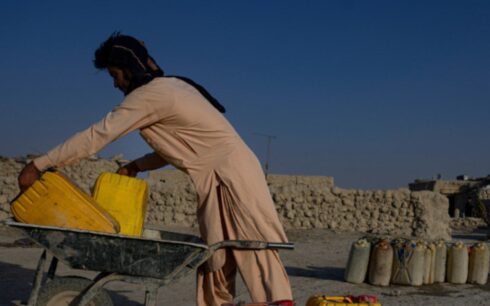KABUL, Afghanistan — Over the past three years, the Taliban have formalized seven major laws under the direction of their supreme leader, Hibatullah Akhundzada, according to the Taliban-run Ministry of Justice. Among them, the “law of Vice and Virtue” has drawn sharp criticism for imposing unprecedented restrictions on women and girls.
The Ministry of Justice identified the seven laws as the Law of General Responsibility for Monitoring Enforcement and Orders, the Law of Reclaiming Lands, the Law of Compliance, the Law of Beggars, the Law of Currency Exchange and Financial Services, the Law of Industrial Zones, and the Law of Vice and Virtue.
Of these, the Law of Vice and Virtue has sparked widespread outrage domestically and internationally. Residents and activists describe it as oppressive, particularly toward women, by enforcing severe restrictions on their freedoms and mobility.
Under the Law of Vice and Virtue, women are forbidden from traveling without a male guardian, or mahram, even for short distances. The decree has left many women unable to navigate daily life.
“These are the problems we face. We cannot travel without a mahram. There are many women who do not have a guardian,” said one Kabul resident, who requested anonymity for fear of reprisal. “This is our main problem.”
The law, introduced in August, also prohibits broadcasting “living images,” effectively banning depictions of human figures. Article 17 has led to the suspension of operations at several television channels in provinces like Kandahar, Maidan Wardak, Takhar, Helmand, Badghis, and Nangarhar, where the law has been implemented.
The Taliban’s Ministry of Vice and Virtue has vowed to enforce the law nationwide. In the interim, officials have convened meetings with district morality police and security chiefs, emphasizing what they call “reforming the mindset of youths.”
Basic Rights Stripped Away
The law has become emblematic of the Taliban’s broader crackdown on women’s rights. Since their return to power in 2021, the group has enacted some of the most draconian measures against women and girls, barring them from education, public spaces, and employment in most sectors.
“In the past two months, the Taliban’s questioning about the mahram has increased,” said Fariba, a resident of Badghis. “When we go to work, they do not even allow us to speak during inspections. Their main focus is on whether we have a mahram.”
The law has also outlawed women’s voices from being heard outside their homes, a provision activists say further silences half of Afghanistan’s population.
International Condemnation
The Law of Vice and Virtue has been met with strong criticism from human rights groups and the international community. The United Nations and several global organizations have repeatedly called on the Taliban to reverse their restrictive policies, which they argue violate basic human rights.
“This law codifies the Taliban’s ongoing assault on women’s rights,” said a representative of a human rights organization monitoring Afghanistan. “It institutionalizes a system designed to erase women from public life entirely.”





